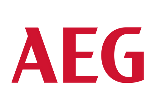
Protecting water resources and bees from pesticides
Pesticides are a key technology for producing high quality plant materials in regions with frequent and high pest occurrence. Water resources are particularly prone to contamination, while honey bees can be at risk when crops are protected against other insects that inflict damage on food, fiber or fuel crops. A series of LIST projects and recent events support the initiative of the Ministry of Agriculture, Viticulture and Consumer Protection to decrease the risks associated with the use of pesticides.
First, a project called Efficient Crop Rotation Systems for Oilseed Rape (EFFO) - co-funded by the Ministry of Sustainable Development and Infrastructure,the Ministry of Agriculture, Viticulture and Consumer Protection and the Ministry of Higher Education and Research - will reduce the risk of herbicide transfer into the water. Secondly in the Effects of agricultural structures and apicultural techniques on honey bee health in Luxembourg(BeeFirst) project supported by the Administration des Services Techniques de l’Agriculture (LU), LIST researchers will acquire data needed for minimizing winter losses in managed honey bee colonies across Luxembourg. One aspect of the project is part of the national program focused on reducing the risks of pesticide use. Thirdly, in the Warning and advisory platform for the main pests and diseases in the major crops in Luxembourg(Sentinelle) project - supported by the Administration des Services Techniques de l’Agriculture - LIST researchers use monitoring data and models to identify periods, when no pesticide use is needed. All projects were done in the context of LIST’s activities in Agro-Environmental Systems, which mainly address holistic approaches to estimate the effect of agriculture (cropping techniques, crop rotation, use of pesticides) to environmental factors. Next for basic and applied research, these activities contribute to policy support.
TOWARDS CLEANER WATER AND HEALTHIER BEES
LIST researchers recently accompanied three visits to the agricultural test fields in Luxembourg, organized by the Lycée Technique Agricole, the Chambre d’Agriculture, or the federation of young farmers on Luxembourg.
A first visit was held on 15 June 2018 at the premises of the Lycée Technique Agricole in Bettendorf. LIST’s researchers specialized in agro-environmental systems had the opportunity to present strategies for minimizing pesticide use in winter wheat and oilseed rape to Fernand Etgen, Minister of Agriculture, Carole Dieschbourg, Minister for the Environment as well as to about 100 farmers, teachers and agricultural advisors.
A second field visit that was held on 22 June 2018 at an experimental field in Wahl. LIST researcher Michael Eickermann presented in collaboration with the Chambre d’Agriculture rapeseed plots to farmers, consultants and politicians where agronomic techniques such as undersown crops, comb harrowing, extended row spacing, alternative oil crops such as false flax and hemp cultivars for oil production rather than herbicides were used for suppressing weeds.
RAISING AWARENESS FOR THE FRAGILITY OF BEES
At the ‘Dag um Bauerenhaff’ (‘day at the farm’), an event that took place at Herborn on Sunday 17 June 2018, LIST presented its activity in agricultural research with a focus on pollinators. Along exhibitors from agricultural business, such as farmer associations, producers of local products and apple growers, LIST showed living bees and their products and explained to visitors the advantage of a sustainable agriculture for pollinator insects and crop yield. Those activities were also presented to the event’s honored guests Xavier Bettel, Prime Minister, Minister of State as well as Fernand Etgen, Minister of Agriculture, and Carole Dieschbourg, Minister of Environment.
Anyone who wants to learn more about the research and the challenges farmers and beekeeper are facing in the context of pesticide use is invited to visit LIST’s booth at the ‘Foire Agricole d’Ettelbrück’ in Ettelbrück, Luxembourg, from 29 June to 1 July 2018. There, LIST will have a joint booth with the national beekeeper association dedicated to the research activities related to bee protection in Luxembourg.
Source : The Luxembourg Institute of Science and Technology (LIST)









